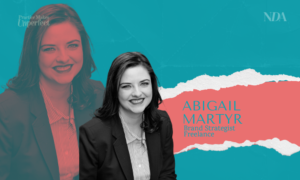By Cara Aghabi, Campaign Manager at A Million Ads
These articles have been written by the latest cohort of the Practice Makes UnPerfect programme – a course that helps people find and finesse their public voices
Society encourages us to continuously pursue learning, through acquiring new knowledge to support our development and understanding. But why aren’t we putting more pressure on ‘unlearning’ (the practice of stripping away the beliefs and ways to act/behave that have been taught to us in our upbringing, by our cultural and societal norms)? Companies are constantly motivating us to upskill and go to all these online training sessions, but do they ever help us unlearn and give us the tools to question our own societal norms?
We are seeing that ‘unlearning’ has been attracting interest in the way businesses do things, especially in organisational learning, innovation, change, crisis management and other institutional fields. For example, In 2016, The Harvard Business Review discusses how in the marketing field, we need to unlearn the push model of marketing and explore alternative models (ones that are less linear and transactional). On the other hand, organisations fail to address the power that unlearning has in supporting our ability to adapt to the fast-changing social conditions that are prevalent in today’s society, and how it contributes to personal growth and self-betterment.
Although the term ‘Unlearning’ has been around for decades, we are hearing the word more and more frequently, with so many TED talks addressing its power. This is no surprise as we know that Gen Z is taking action to drive the change they want to see in the world. A Deloitte Global Millennial and Gen Z survey revealed that “they believe the world has reached a tipping point on issues such as racial justice, inequality and the environment”. 49% of GenZs surveyed by Forbes in 2021 said that they have made choices about the types of work they would do and the organisations they’d be willing to work for – based on their personal values. This is why unlearning is so important. It involves challenging the way things are “supposed to be” and ultimately choosing what resonates. Or not.
There’s no doubt this is a challenging and scary process. It forces an individual to look within, question themselves, their condition, and question whether these thoughts are what they truly believe to be a representation of their authentic self and values vs. a representation of how they’ve conformed to fit social norms. It forces us to unlearn our unconscious biases. An unconscious bias is when our brains automatically make quick judgments and assessments towards other people that are influenced by our background, personal experiences, societal stereotypes and cultural context.
It is not a secret that as a collective society, there has been a movement towards the unlearning of past norms and beliefs. Social movements are different forms of collected action that are in response to situations of inequality, oppression or unmet social, economic, or cultural demands. We even see it in our media consumption with shows like ‘Good Trouble’ that not only highlight the prevalent social issues but take you through the processes of unlearning. ‘Sex Education’ on Netflix was groundbreaking in addressing the sexual stereotypes of young adults and the show ‘This is us’ also highlights the hardships of racism and body shaming.
A 2019 BBC article on ‘How a small minority can change the world’ states that in the UK, 2.3 million people are actively engaging in a social movement! To name a few, there have been increasing efforts to unlearn systematic racism, patriarchal systems, internalised misogyny, the stigmatisation of sexual orientation and gender identification. We as a society have pushed for a movement away from accepting that “this is the way it is” and are actually questioning why we think these things in an effort to be more compassionate, open-minded, and ultimately respectful to those that were forced to be marginalised. We as individuals are actively trying to unlearn our unconscious biases.
So why aren’t companies doing more to help us unlearn our unconscious biases especially when they are so prevalent and have massive implications on the employees and organisations themselves?
It is a large contributor to inequality in the workplace. These assumptions have lasting effects on who businesses are promoting, hiring, and putting in leadership positions. Candidates who have stereotypically ‘foreign’ sounding names receive 50% fewer interview callbacks than other candidates. Blonde women are paid 7% more than Brunettes in the UK. 40% of Americans associate a Southern accent with being uneducated. A study by Yale also found that both male and female scientists are more likely to hire men and pay them $4,000 more per year than women. Individuals that are likely to experience the repercussions of these biases are more likely to participate less in the workplace and feel excluded.
Companies could really benefit from implementing practices that help their employees unlearn these social biases. Unlearning will allow leaders to make fairer decisions, create a more accepting and supportive work environment, and increase innovation through developing a more diverse workforce.
If you are looking to start your unlearning process at work, here are a few places to start…
The ‘myth’ of cultural fit. When a business is looking for a new hire, there is an expectation and desire for that candidate to ‘fit in’ with the company culture and therefore companies have a tendency to adapt a one size fits all approach to the way they do things. But shouldn’t new hires be a cultural add rather than a cultural fit? To highlight their differences and how that can create value?
Meeting norms and who they favour. With a hybrid working culture, both in person and online meetings are stacking up, and most of us are having to spend a lot of our day’s in these environments. Which is exhausting in itself. But what about the experiences of those with neurodiverse conditions? Are there any practices in place to make their day to day less challenging?
Socialisation at work. It’s 5:30pm and you and your colleagues are making your way to the pub for some work drinks.. Do all of your colleagues enjoy being surrounded by alcohol or do some of them avoid those environments because of cultural/religious/historical reasons?
With all this talk of unlearning, there’s a lot of things that we should not unlearn and hold close to our chest. Don’t unlearn the process of learning. The benefits of curiosity and asking questions. Don’t unlearn what you’ve learned from your mistakes, or the ability to evolve – as we all should – in our quest to make society better.






